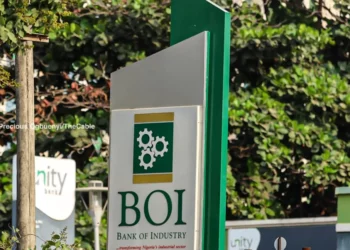A scholar, Professor Olufemi Ajayi, has said the 2024 budget allocation for the agricultural sector will not make any difference or bridge the gap in the nation’s food deficit.
Ajayi, a lecturer in the Department of Agricultural Extension, Obafemi Awolowo University, Ile-Ife, Osun, spoke with the News Agency of Nigeria (NAN) in Lagos. He urged President Bola Tinubu’s administration to be more committed to addressing challenges in the agricultural sector.
NAN reports that Tinubu had on Monday signed into law the 2024 Appropriation Bill at the Presidential Villa, Abuja. Tinubu signed the N28.7 trillion budget, which was N1.2tn higher than the budget he proposed to a joint session of the National Assembly on Nov. 29, 2023.
The don said that the 2024 allocation had further shown that agriculture had never had it so good in any regime. He noted that food should always come first but like the past government, food production is not given the right allocation.
Ajayi added that the nation had relied too much on food importation to bridge its food deficit, which had negatively affected the economy. He made a reference to previous agriculture budgets.
He said, “In 2019, the allocation to agriculture was 3.61 per cent; in 2020, it was 1.51 per cent; in 2021, 1.25 per cent; in 2023, it was 1.05 per cent. I took you back to 2019 to show that agriculture had never had it so good in any regime.
“My thinking was that President Tinubu would look at agriculture because we have always been saying that food security precedes every other security.
“A hungry man is an angry man; the people that are hungry will not be able to engage in productive activities; they will rather want to be involved in provocative activity.
“Food should come first, but like the past government, nobody is giving due attention to agriculture, maybe because of the kind of assumption that farmers have no say.
“Government believes that farmers cannot protest whatever we give them; they cannot go on strike and they cannot say they are no longer producing. What is before us now, even when they want to produce, they cannot produce; they find it difficult to produce.”
Ajayi said that the interest rate on agriculture loans was too high and unsustainable, while calling for a reform. He also urged the government to focus on increasing food production by opening more lands to farming.
The professor said that the government must also begin to work with extension officers who were on the field and could identify registered and practicing farmers.
“Now we have a food deficit; we have always been having food self-deficit, which has always led us to food importation.
“Anytime we import food, remember, we are reinforcing the labor of those countries that are producing it. We import their waste; we import every of their challenges with the food they produce, we bring into our own country.
“We left our teeming population of youths and elderly jobless. This is the job they would have been truly engaged in, but we do not allow them to do so because we want to rush somewhere else to bring in our food deficit due to non-attention to agriculture.
“If we are going to move away from the importation of our food deficit, we need some time because agriculture is not a one-off thing.’’
Ajayi said there was a need to open up new lands and open up agriculture to investors. According to him, there should be money for agriculture so that serious investors in agriculture can approach their banks.
He said, “The interests on agricultural loans are too high and there is no way it can be sustainable. Agriculture loans are too high and not sustainable, and we must address it now.’’
because the majority of farmers will abandon farming.
“In 2024, the government needs to focus on how to increase food production and this should be included in the budget.
“This can be achieved using a very thorough and well-planned program so that funds allocated for that purpose will be adequately utilized and not diverted to political farmers,” he said.





